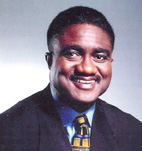 In the months leading up to this week's Supreme Court decision on affirmative action, a public opinion poll by ABC News and the Washington Post showed that 76 percent of Americans oppose affirmative action in college admissions. However, a poll conducted by the Public Religion Research Institute showed that 68 percent of Americans favor the principles behind affirmative action.
In the months leading up to this week's Supreme Court decision on affirmative action, a public opinion poll by ABC News and the Washington Post showed that 76 percent of Americans oppose affirmative action in college admissions. However, a poll conducted by the Public Religion Research Institute showed that 68 percent of Americans favor the principles behind affirmative action.
How do Americans really feel about affirmative action? The short answer is that it depends on how the question is asked.
The ABC/Washington Post question, asked June 5-9, was posed this way: "Overall, do you support or oppose allowing universities to consider applicants' race as a factor in deciding which students to admit?"
Of those responding, 76 percent opposed, 22 percent voiced support and 2 percent were undecided.
Public Religion Research Institute, which conducted a poll May 15-19, phrased its question differently: "In order to make up for past discrimination, do you favor or oppose programs which make special efforts to help blacks and other minorities get ahead?"
More than two-thirds of the respondents – 68 percent – favored such efforts, 24 percent opposed, 6 percent were unsure and 2 percent provided other replies.
Note the wording of the questions. The ABC/Washington Post question provided no context for evaluating affirmative action admissions, only whether respondents support or oppose using race as a factor. On the other hand, the Public Religion Research Institute approach placed the issue within the context of "past discrimination" and using "special efforts" to help people of color get ahead.
An NBC/Wall Street Journal poll, conducted May 30-June 2, showed Americans evenly divided on the issue.
Respondents were asked to choose between two statements: A) Affirmative action programs are still needed to counteract the effects of discrimination against minorities, and are a good idea as long as there are no rigid quotas and B) Affirmative action programs have gone too far in favoring minorities, and should be ended because they unfairly discriminate against whites.
In that poll, 45 percent of the respondents said affirmative action programs are still needed to counteract the effects of discrimination against people of color. But the same margin – 45 percent – said they feel the programs have gone too far and should be ended because they unfairly discriminate against Whites.
A closer examination of the numbers show a deep racial divide. For example, 71 percent of African Americans strongly believe affirmative action programs are still needed, compared to only 20 percent of Whites and 39 percent of Hispanics. Another 11 percent of Blacks feel affirmative action should continue, but did not feel as strongly about it. Among Hispanics, 29 percent were in that category and 14 percent of Whites.
When supporters – strong and not as strong – are added together, 82 percent of African Americans want to retain affirmative action, compared to 68 percent of Hispanics and 34 percent of Whites.
When you add the two categories of those wanting to abolish affirmative action, a majority of Whites – 56 percent – support such a move, compared to 7 percent of African Americans and 24 percent of Hispanics.
A CNN/ORC poll, conducted June 11-13, asked the question: Do you approve or disapprove of affirmative action programs at college and law schools that give racial preferences to minority applicants?
The reference to "racial preferences" is a loaded term unlikely to elicit a favorable response. In this case, 68 percent of respondents said they disapprove of affirmative action as it was defined, 29 percent approved and 3 percent expressed no opinion.
Affirmative action should be viewed in light of overall racial attitudes in America.
As we approach the 50th anniversary of the March on Washington for Jobs and Freedom, people of color and Whites have closely aligned views on whether Dr. King's dream of equality has been fulfilled.
In the CNN/ORC poll conducted Jan. 14-15, respondents were asked: "Martin Luther King gave his famous 'I Have a Dream Speech' at a civil rights march in Washington in 1963. In your view, do you think the U.S. has fulfilled the vision King outlined in that speech, or don't you think so?"
According to the poll, 51 percent of Whites in the U.S. believe Dr. King's vision has been fulfilled; 49 percent of non-Whites subscribe to that view. Unfortunately, the poll does not separate the Black responses.
In an Aug. 4-7, 2011 USA/Gallup Poll, 55 percent of Black respondents said they believe relations between Blacks and Whites will always be a problem, compared to 44 percent for Whites, with 2 percent unsure.
That same poll showed how differently Blacks and Whites view the proper role of government.
When asked about the role government should play in trying to improve the social and economic position of Blacks and other people of color, 59 percent of Blacks said the government should play a major role, 32 percent said a minor role, 8 percent said no role and 1 percent was unsure. Among Whites, only 19 percent said the government should play a major role, 50 percent said a minor role, 30 percent said no role and 1 percent was unsure.
George E. Curry, former editor-in-chief of Emerge magazine, is editor-in-chief of the National Newspaper Publishers Association News Service (NNPA.) He is a keynote speaker, moderator, and media coach. Curry can be reached through his Web site, www.georgecurry.com. You can also follow him at www.twitter.com/currygeorge and George E. Curry Fan Page on Facebook.
- Home
- News
- Opinion
- Entertainment
- Classified
- About Us
 MLK Breakfast
MLK Breakfast- Community
- Foundation
- Obituaries
- Donate
11-27-2024 10:47 am • PDX and SEA Weather












































































































































































































































































































